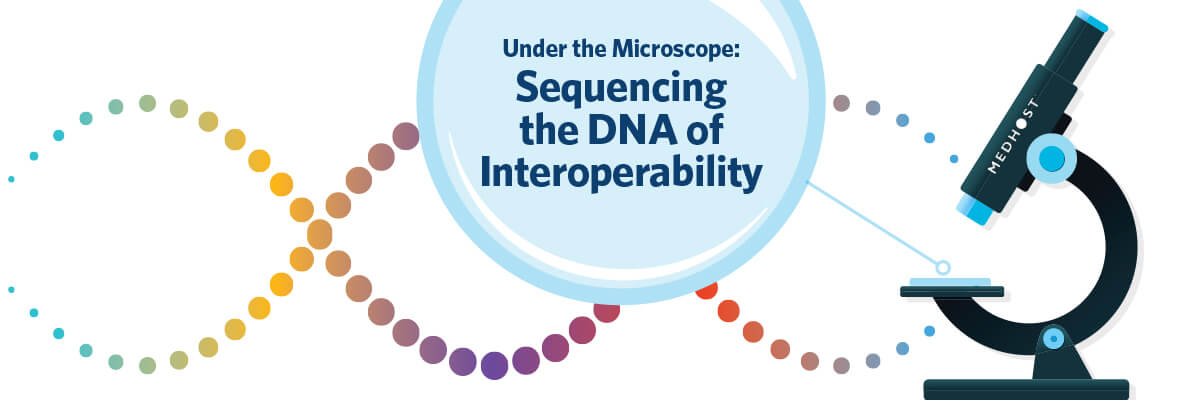Let’s talk about your EHR needs: 1.800.383.6278 MEDHOST Community Login
To achieve optimum care across all settings, every provider and patient should have access to the same health data. With shared access to healthcare data, each individual involved in a patient’s care journey can create and execute a comprehensive care plan. To attain this coordination, we need interoperability.
In itself, interoperability is not a product, and no single solution will solve all the goals it hopes to achieve. Currently, interoperability in healthcare is still developing in terms of delivering on widespread data availability and exchange. However, MEDHOST believes that interoperability should be considered a core characteristic of electronic health record (EHR) platforms. By linking the challenges of interoperability with the wide-ranging potential of an EHR, we can come closer to delivering on the core promises of this worthy HIT endeavor.
Our interoperable EHR platform including YourCareData™ offers a built-in solution that can facilitate improved care coordination that helps to fulfill the requirements of the healthcare legislation.
The MEDHOST Electronic Case Reporting (eCR) solution helps participating MEDHOST customers meet new CMS reporting requirements by enabling them to generate and transmit specified case reports for reportable conditions.
Our vision for higher interoperability standards supports the exchange of data in every care setting. MEDHOST supports these exchanges through:
Users can also incorporate problems, medications, and allergies into medical records from CCDA documents sent by other facilities.
Through online portals like Clinical Gateway and YourCare Continuum™, MEDHOST can streamline the care coordination process between the clinic and hospital settings to ensure seamless scheduling and referrals of order services:
In compliance with 2015 Cures Edition standards for four public health offerings, MEDHOST supports initiatives to further population health management by offering interfaces for:
A full-service cloud-based solution for managing the flow of electronic data. This service also supports an organization’s independent data exchange and interface requirements.
MEDHOST supports two types of electronic health information export:
A patient can initiate single-patient exports if the facility utilizes the MEDHOST YourCare® Universe patient portal product. It can be generated by an administrator at the facility on behalf of the patient. The extract is then available to the patient via a secure link that is sent to the patient’s email address upon completion of the export.
System exports can only be initiated by an administrator (MEDHOST/facility).
MEDHOST utilizes the FHIR R4 v 4.0.1 as a guideline for the structure of electronic health information (EHI). In some cases, MEDHOST adds additional fields to some of these resources to accommodate data fields that are captured in MEDHOST but are not defined in the FHIR R4 standard. Documentation for these “extensions” are available here.
The EHI Export process generates multiple NDJSON files per patient that are presented to the user as a compressed (zip) file.

MEDHOST’s Director of Interoperability gives a quick breakdown of one of the most critical challenges facing the healthcare IT sector, especially EHR providers. In this video, Laskaris talks about interoperability, how it has evolved, what it will take to achieve, and why full-on participation is important for its success.

The continuity of care document is instrumental in facilitating communication about the patient between providers. Learn how it can help your healthcare facility be even more interoperable.

In today’s consumer-driven healthcare market, improved coordination across the entire care cycle is essential to optimizing population health management. Similar to Meaningful Use and EHR adoption, Interoperability needs to be a priority for healthcare organizations nationwide.

Find out how, along with TEFCA’s guiding principles, participation and collaboration can help healthcare promote interoperability.